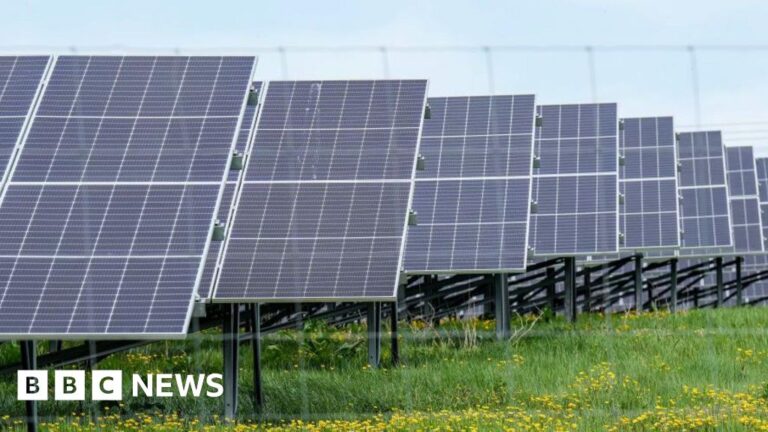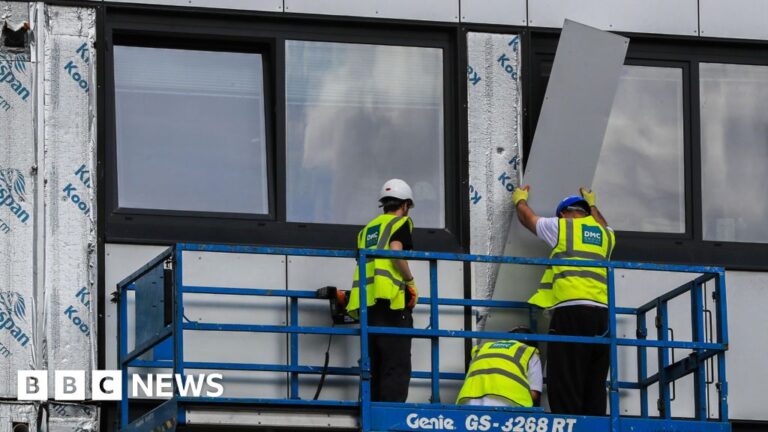Here is the text in plain text format, without any HTML code:
Five years ago, on 31 January 2020, the UK left the European Union. On that day, Great Britain severed the political ties it had held for 47 years, but stayed inside the EU single market and customs union for a further 11 months to keep trade flowing. Northern Ireland had a separate arrangement.
Brexit was hugely divisive, both politically and socially, dominating political debate and with arguments about its impacts raging for years. Five years on from the day Britain formally left the EU, BBC Verify has examined five important ways Brexit has affected Britain.
1) Trade
Economists and analysts generally assess the impact of leaving the EU single market and customs union on 1 Jan 2021 on the UK’s goods trade as having been negative. This is despite the fact that the UK negotiated a free trade deal with the EU and avoided tariffs – or taxes – being imposed on the import and export of goods. The negative impact comes from so-called “non-tariff barriers” – time-consuming and sometimes complicated new paperwork that businesses have to fill out when importing and exporting to the EU.
There is some disagreement about how negative the specific Brexit impact has been. Some recent studies suggest that UK goods exports are 30% lower than they would have been if we had not left the single market and customs union. Some suggest only a 6% reduction. We can’t be certain because the results depend heavily on the method chosen by researchers for measuring the “counterfactual”, i.e. what would have happened to UK exports had the country stayed in the EU.
The money the UK sent to the EU was a controversial theme in the 2016 referendum, particularly the Leave campaign’s claim the UK sent £350m every week to Brussels. The UK’s gross public sector contribution to the EU Budget in 2019-20, the final financial year before Brexit, was £18.3bn, equivalent to around £352m per week, according to the Treasury.
The UK continued paying into the EU Budget during the transition period but since 31 December 2020 it has not made these contributions. However, those EU Budget contributions were always partially recycled to the UK via payments to British farmers under the EU’s Common Agricultural Policy (CAP) and “structural funding” – development grants to support skills, employment and training in certain economically disadvantaged regions of the nation. These added up to £5bn in 2019-20.
Since the end of the transition period, UK governments have replaced the CAP payments directly with taxpayer funds. Ministers have also replaced the EU structural funding grants, with the previous government rebranding them as “a UK Shared Prosperity” fund.
The UK was also receiving a negotiated “rebate” on its EU Budget contributions of around £4bn a year – money which never actually left the country. So the net fiscal benefit to the UK from not paying into the EU Budget is closer to £9bn per year, although this figure is inherently uncertain because we don’t know what the UK’s contribution to the EU Budget would otherwise have been.
The UK has also still been paying the EU as part of the official Brexit Withdrawal Agreement and its financial settlement. The Treasury says the UK paid a net amount of £14.9bn between 2021 and 2023, and estimated that from 2024 onwards it will have to pay another £6.4bn, although spread over many years. Future payments under the withdrawal settlement are also uncertain in part because of fluctuating exchange rates.
However, there are other ways the UK’s finances remained connected with the EU, separate from the EU Budget and the Withdrawal Agreement. After Brexit took effect, the UK also initially stopped paying into the Horizon scheme, which funds pan-European scientific research. However, Britain rejoined Horizon in 2023 and is projected by the EU to pay in around €2.4bn (£2bn) per year on average to the EU budget for its participation, although historically the UK has been a net financial beneficiary from the scheme because of the large share of grants won by UK-based scientists.
The future
There are, of course, a large number of other Brexit impacts which we have not covered here, ranging from territorial fishing rights, to farming, to defence. And with Labour looking for a re-set in EU relations, it’s a subject that promises to be a continuing source of debate and analysis for many years to come.
Source link




